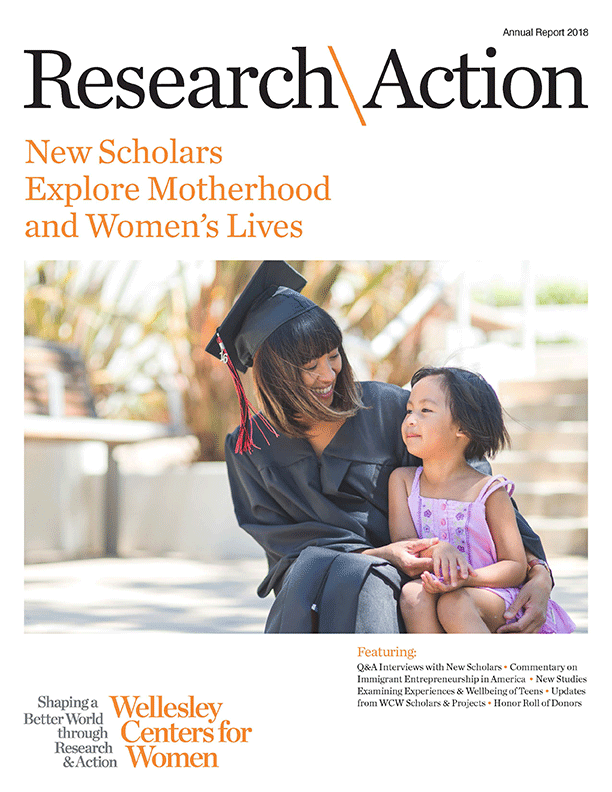Linda Charmaraman, Ph.D., WCW senior research scientist and director of the Youth, Media, & Wellbeing Research Lab, co-presented a poster with her WCW Class of ’67 Intern Rebecca Leu (Class of 2019) entitled, “Adolescent Social Media Use and Body Image: Associations with depression, social anxiety, and peers,” at the annual meeting of the American Psychological Association (APA) in San Francisco, CA, in August. Co-authored by Research Associate Amanda Richer, Wellesley College student Nimo Suleyman (Class of 2021), and collaborator Megan Moreno, M.D., M.P.H., M.S.Ed., from the University of Wisconsin, Madison, they demonstrated that a little over half of early adolescent social media users in their middle school sample have felt body dissatisfaction from viewing social media. Those who are particularly vulnerable are females, older adolescents, those with large online peer networks, and those who check their social media frequently. Also at APA, Charmaraman presented a poster, “How Liberal Voters Interpreted the 2016 Trump Media Campaign: Race, gender, age, and civic issues,” on behalf of co-authors Katharine Madsen (Class of 2019), Richer, and Lisette DeSouza, Ph.D., WCW postdoctoral scholar. By analyzing the interpretations of the Make America Great Again slogan in the survey sample of 1,570 respondents, the researchers found that the stronger one’s social identity, the more likely one associates the slogan with racial relations, the desire for more homogeneity, and a return to the pre-civil rights era. However, if someone has a strong gender identity, the slogan was more likely to be interpreted as encompassing traditional gender roles, male dominance, and family values.
In October, Charmaraman was invited to be a speaker on a panel about digital media, mental health, and relationships at the Second National Congress of Digital Media and Developing Minds held at Cold Spring Harbor Laboratory, New York. The interdisciplinary conference brought together scientists in the fields of neuroscience, pediatrics, psychiatry, psychology, communications, education, public health, and epidemiology to report on the state-of-the-art empirical research and medically-based methodologies used to study the impact of digital media on toddlers, children, and adolescents. Charmaraman’s talk focused on early adolescent wellbeing and expressions of peer emotional support on social media.
In May, Charmaraman addressed the National Asian American Professionals Association, in Jamaica Plain, MA. During the event, “Cultural Identities Lost in Translation? Growing up bicultural,” Charmaraman discussed Asian American identity, family socialization, media habits, and mental health. She drew from her past experience teaching Asian American Psychology at Wellesley College and from her recently published article in Asian American Journal of Psychology, “Asian American Social Media Use: From cyber dependence to cyber harassment to saving face.” In September, the Youth, Media, & Wellbeing Research Lab shared the preliminary results at one of the school communities of the pilot study funded by Children and Screens: Institute of Digital Media and Child Development. Over 70 parents in a Boston suburb attended the panel discussion, led by Charmaraman, Jennifer Grossman, Ph.D., WCW senior research scientist, and Moreno.


